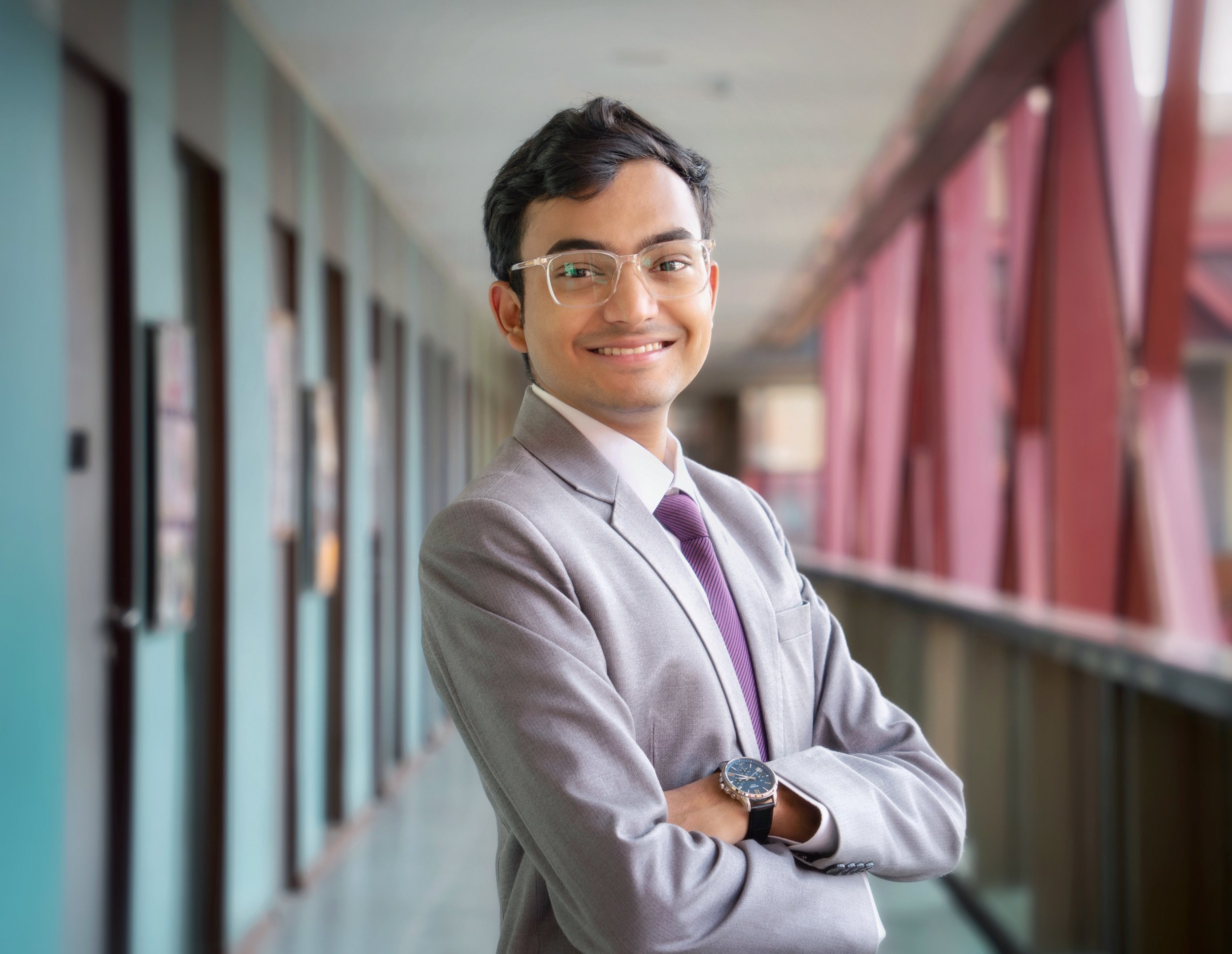Reflections on debating at the historic Oxford Union
Faizan at the dabate
As a Weidenfeld-Hoffmann Scholar, my journey at the University of Oxford has been a whirlwind of academic challenges, personal growth, and unique experiences. One of the highlights of my time here has undoubtedly been the opportunity to participate in the WHT Annual Debate at the historic Oxford Union. I remember years ago in school watching the Indian parliamentarian Shashi Tharoor making a case for reparations for India from the British Empire. Who had thought that I would be in the same hall years later, asking individuals to bear responsibility for the actions of their governments?
The WHT debate is fully organised by the scholars themselves. A debate that lasted almost an hour involved a lot of behind-the-scenes preparation that took weeks.
The first step was deciding the motion and that was done through a democratic process. Scholars coming from vastly diverse backgrounds, countries, political situations and life experiences suggested themes and motions which were then put to vote. The motion that got the maximum votes was then discussed with debating coaches for any tweaks for fairness and deciding the contours of the debate. The final agreed motion then read “This House believes that individuals should bear responsibility for the actions of their government.” Many of us were anxious, somewhat uncomfortable with the motion and gripped with uncertainty regarding where the debate could go. Many of us had never done any public speaking activity before, let alone debating. For the next 3 weeks, WHT organised several debating workshops which honed our critical thinking and public speaking skills. As the sessions progressed, we grew more confident and learnt how to articulate ourselves better and think deeply about agreements and disagreements.
Soon, through a random draw of lots, I was teamed up with Taha, Shawntel, Vlada and Mykhailo. Facing me were Rohan, Sagoon, Hanbit, Fareed and Xenia. It was during our preparation weeks that we got to each other more as a team. It was heartwarming to see how we could think of many ways of presenting our case, through wit, rhetoric and at times humour. Sitting together and brainstorming was the sheer joy that no group project had ever brought me.
Both Teams from the WHT Annual Debate
L-R : Fareed Fakhoury, Rohan Chopra, Mykhailo Kiktenko, Sagoon Bhetwal, Hanbit Lee, Shawntel Nieto, Xenia Baranchikova, Faizan Ahmad, Syed Taha Qadri, Vladyslava Savytska.
Then finally the much-awaited day came. We entered ceremoniously with the Chair of the debate into the packed hall cheering and clapping, through the doors of ‘ayes’ and ‘noes’ depending on the side we stood for. Before the debate started, only 19 people were in favour of the motion as per the pre-vote. By the end of 8 speeches, 4 in favour and 4 against, each lasting 4 minutes, 63 people now agreed with the proposition. That is when I realised the power of advocacy and persuasion, even when the odds are against you. But no numbers could capture the feeling of seeing your friends, even those across the aisle, speak with gleamed eyes filled with passion and confidence. The debate and subsequent Q&A by the audience showed that both teams had much less to disagree on principle or what kind of world we imagine, rather it was about how to achieve a fairer and better world. This debate was more than just an intellectual exercise; it was a reflection of the urgent need for accountability of states in the grave times we are living in. If you haven't watched the WHT debate yet, watch it here.
The experience taught me invaluable lessons about leadership and ethical responsibility. In advocating for our respective positions, we were reminded of the ethical imperative to consider the broader implications of our actions and decisions.
Debating at the Oxford Union was not just about showcasing rhetorical skills; it was about reclaiming space for those who are excluded and for the oppressed of the Global South unapologetically. As I reflect on my journey from the Muslim ghettos of India to Oxford, I am grateful for getting the privilege to speak here. As a lawyer, it has reinforced my commitment to advocating for social justice and equity for my community back home in India.



